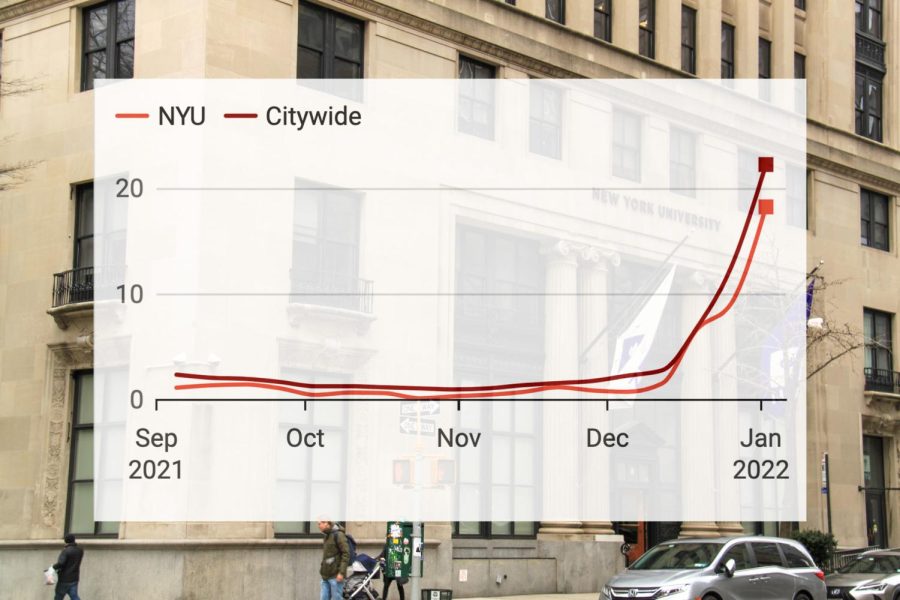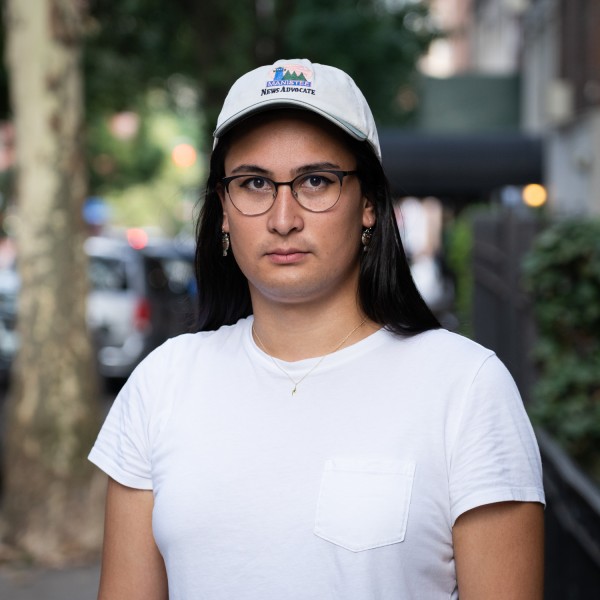NYU COVID positivity rate more than 20x pre-omicron average
The most recent data shows an 18.29% positivity rate in COVID tests at NYU.
NYU’s COVID-19 positivity rates have increased sharply in recent weeks, but have remained lower than the rates in New York City as a whole.
January 10, 2022
COVID-19 positivity rates at NYU are up drastically, with 18.29% of tests conducted between Dec. 27 and Jan. 2 coming back positive. This latest data marks a 22-fold increase from the average fall semester positivity rate before the surge of the omicron variant.
From Aug. 30 through Nov. 28, NYU’s positivity rate averaged 0.83%. The omicron variant was first detected in New York state on Dec. 2, and since then, NYU’s positivity rate has increased sharply from week to week — from 0.77% for the week ending Dec. 5 to 18.29% for the week ending Jan. 2.
While NYU’s positivity rates rose significantly, they remained lower than the city’s rates. Over the same seven-day period as NYU’s 18.29% rate, New York City reported a positivity rate of 34.44%. The most recent available data shows a 20.76% citywide positivity rate on Jan. 6, with a seven-day average of 31.1%.
Meanwhile, NYU’s vaccination rates remain significantly higher than the city’s vaccination rates. NYU reports that 99% of its students, faculty and employees are fully vaccinated as of Jan. 2. Only 73% of New York City residents and 79% of Manhattan residents are fully vaccinated as of Jan. 8, according to city data.
While vaccines are less effective at preventing infection by the omicron variant compared to other variants, vaccinated people are overall less likely to contract COVID-19 and are significantly less likely to experience severe illness than unvaccinated people. Booster shots reduce the risk of infection from the omicron variant and greatly reduce the risk of severe illness.
Boosters are available at the NYU Student Health Center and through both New York City and New York state, as well as local pharmacies.
Contact Alex Tey at [email protected] and Arnav Binaykia at [email protected].


























































































































































